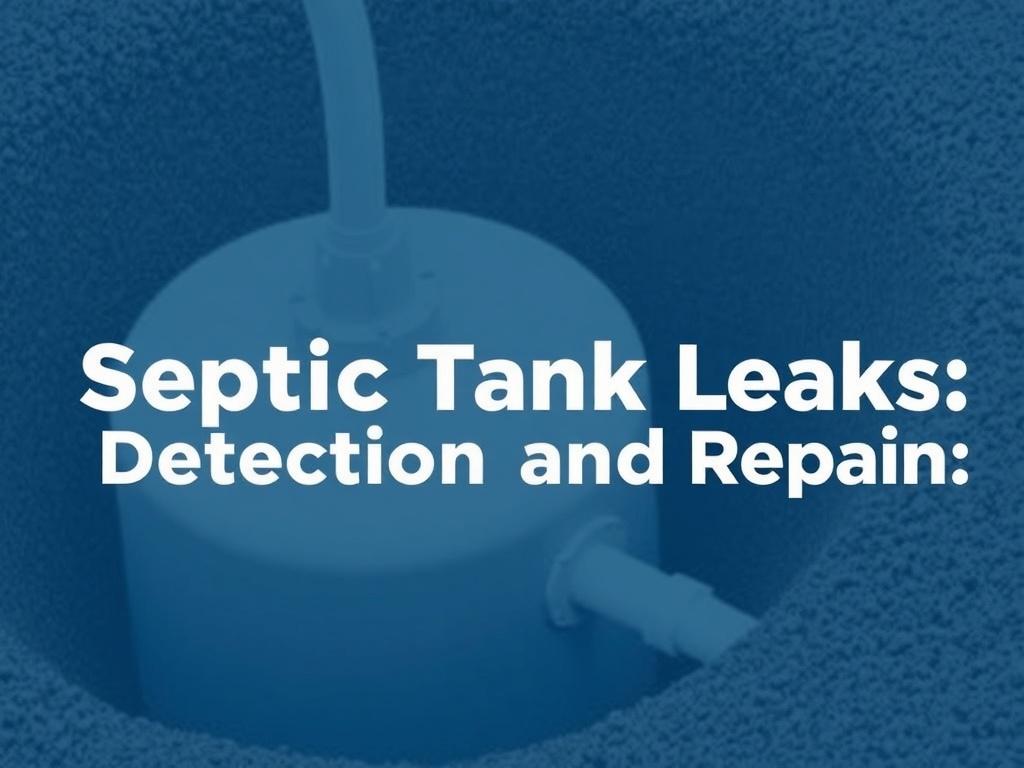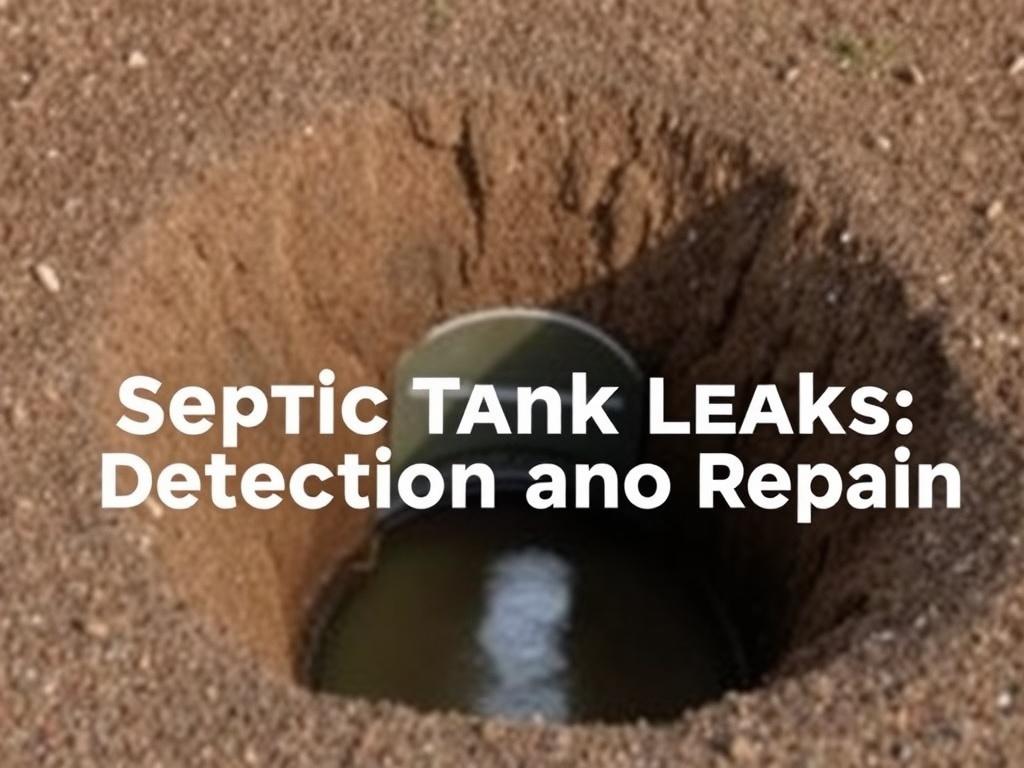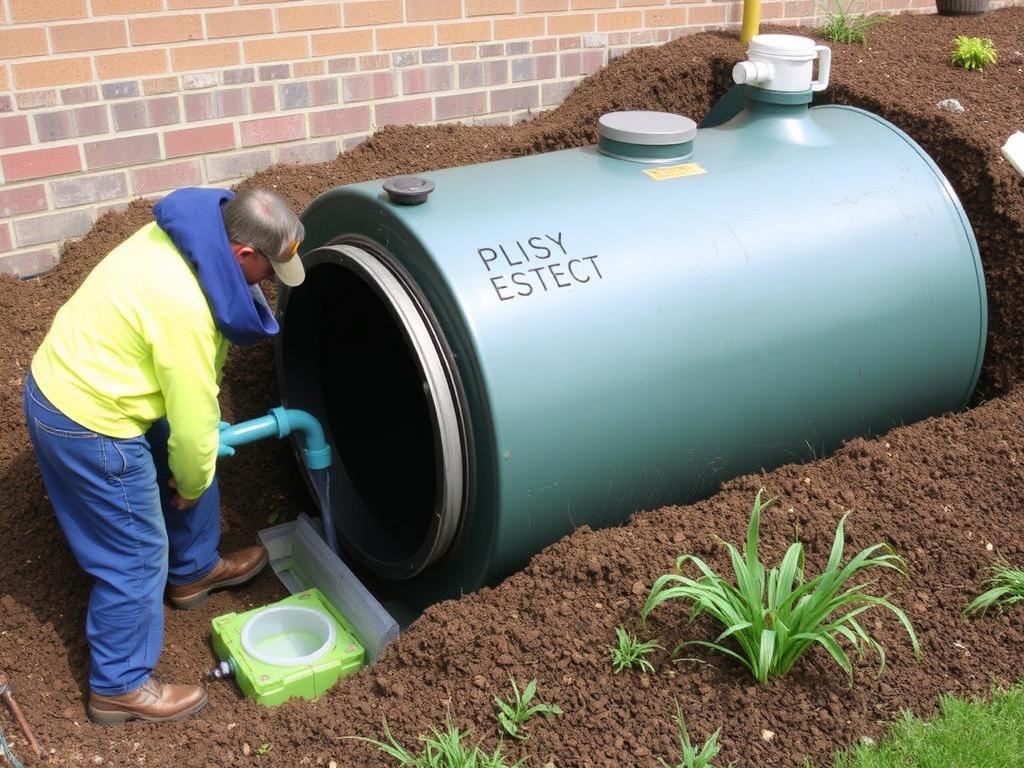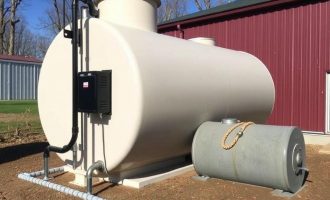- Understanding Septic Tanks and Why Leaks Matter
- How Septic Tanks Work: A Quick Overview
- Common Causes of Septic Tank Leaks
- Signs That Your Septic Tank May Be Leaking
- Detecting Septic Tank Leaks: Tools and Methods
- Visual Inspection
- Smoke Test
- Water Test
- Soil Probe Testing
- CCTV Camera Inspection
- Testing Groundwater
- Repairing Septic Tank Leaks: Options and Considerations
- Minor Crack Repairs
- Replacing Damaged Sections
- Tank Replacement
- Drainfield Repair
- Professional Help vs. DIY
- How to Prevent Septic Tank Leaks
- Environmental and Health Risks of Septic Tank Leaks
- Costs and Insurance Considerations
- When to Call a Professional
- Summary Table: Septic Tank Leak Detection and Repair at a Glance
- Conclusion
Understanding Septic Tanks and Why Leaks Matter
A septic tank is a vital part of many homes, especially those in rural and suburban areas without access to centralized sewage systems. Essentially, it’s an underground wastewater treatment facility that processes household sewage by separating solids, liquids, and scum. However, like any system, septic tanks can develop problems over time, with leaks being among the most troublesome and potentially dangerous. Septic tank leaks don’t just pose a financial headache; they can seriously impact your property’s safety, your family’s health, and the environment.
When you think about septic tank leaks, it’s important to understand what causes them and the signs you should watch for. Early detection is key to avoiding expensive repairs and hazards like soil contamination or groundwater pollution. This guide will walk you through everything you need to know about septic tank leaks, including how to detect, prevent, and repair them effectively.
How Septic Tanks Work: A Quick Overview

Before diving into the topic of leaks, let’s briefly look at how septic tanks operate. Typically, household wastewater flows from your home into the septic tank. Here, solids settle to the bottom forming sludge, while oils and lighter substances float to the top as scum. The middle layer, mostly clear liquid, drains out into the drainfield or leach field, where the soil naturally filters contaminants.
The integrity of the septic tank walls and the drainfield is crucial. Any breach can allow untreated wastewater to escape into the surrounding soil or groundwater. This can lead to unpleasant odors, saturated yard areas, or worse, contamination that can cause health issues.
Common Causes of Septic Tank Leaks
Understanding what causes septic tank leaks can help in prevention and quick fixes. Here’s a list of the most common reasons why leaks may occur in your septic system:
- Corrosion and Age: Older septic tanks, especially those made from metal, can corrode over time, leading to cracks and holes.
- Damage from Heavy Machinery: Driving heavy vehicles or equipment over a septic tank can crack or crush the tank or pipes.
- Tree Roots: Roots seek moisture and can infiltrate cracks in the tank or drainfield pipes, causing blockages and leaks.
- Improper Maintenance: Failing to pump the tank regularly leads to sludge buildup, causing pressure that may crack the walls or pipes.
- Soil Movement: Natural shifts in soil due to weather or construction can dislodge or crack septic components.
Signs That Your Septic Tank May Be Leaking

Detecting septic tank leaks early can save you a lot of time, money, and hassle. Here are some warning signs you should be vigilant about:
- Foul odors: A strong sewage smell around your yard or near the septic tank usually indicates a leak.
- Wet or soggy ground: Noticeably damp patches or pooling water around the tank or drainfield could mean wastewater is escaping.
- Slow drains and backups: If sinks, toilets, or showers are draining slowly or backing up, this could indicate a leak or blockage.
- Unusual lawn growth: Lush, green patches on an otherwise dry lawn might signal extra nitrogen from leaking wastewater.
- Presence of flies or pests: These are often attracted to leaking effluent and can be a sign of leaks.
Detecting Septic Tank Leaks: Tools and Methods
If you suspect your septic tank is leaking, it’s best to confirm it quickly and accurately. Here are some methods or tools professionals use and that homeowners might also consider:
Visual Inspection
The first step is typically a thorough visual check of the septic tank area for obvious cracks, damaged lids, or wet spots. While this can catch some issues, many leaks are underground and hidden from plain sight.
Smoke Test
A smoke test involves introducing non-toxic smoke into the septic system. If smoke escapes from any cracks or leaks, it will be visible around the suspected problem areas, revealing hidden leaks.
Water Test
This method involves adding water to the tank and observing if the water level remains stable. A consistent drop might suggest leakage.
Soil Probe Testing
Soil probes can detect elevated levels of moisture or contamination near the tank or drainfield, indicating leaks.
CCTV Camera Inspection
Professional plumbers may use specialized underwater CCTV cameras to visually inspect the inside walls of the septic tank and pipes for cracks and leaks.
Testing Groundwater
In some situations, water samples near the septic tank site are tested for bacteria or nutrient levels that indicate wastewater leakage.
Repairing Septic Tank Leaks: Options and Considerations

Once you confirm a leak, timely repair is essential to prevent further damage to your property and environment. Repair options depend on the severity and location of the leaks.
Minor Crack Repairs
Small cracks or holes can sometimes be sealed using specialized epoxy or polyurethane-based sealants designed for septic tanks.
Replacing Damaged Sections
If a pipe is leaking or a tank wall is severely cracked, replacing those components might be necessary.
Tank Replacement
For tanks that are old, extensively corroded, or damaged, complete replacement may be the safest and most cost-effective long-term solution.
Drainfield Repair
Leaks can also arise from damage to the drainfield pipes or soil saturation. Repairing or replacing the drainfield may be required.
Professional Help vs. DIY
While minor repairs like sealing small cracks may be attempted by knowledgeable homeowners, septic tank repairs generally require professional expertise. Experts have the equipment and knowledge to safely excavate and repair tanks and drainfields without causing further damage or risks.
How to Prevent Septic Tank Leaks
Prevention is always better than cure. Protecting your septic system from leaks isn’t difficult if you keep some simple habits:
| Preventive Measure | How It Helps |
|---|---|
| Regular Pumping | Prevents sludge buildup, reducing pressure on tank walls and pipes. |
| Avoid Driving Over the Tank | Prevents physical damage from heavy loads. |
| Proper Waste Disposal | Avoids clogs or chemical damage by not flushing harsh chemicals or non-biodegradable items. |
| Routine Inspections | Detects problems early before leaks become severe. |
| Prevent Tree Root Intrusion | Plant trees and shrubs away from the tank and drainfield. |
Environmental and Health Risks of Septic Tank Leaks
Septic tank leaks are not just a plumbing problem; they have serious repercussions for your health and the environment. When untreated sewage escapes, it can contaminate soil and groundwater with bacteria, viruses, and harmful chemicals. This contamination risks:
- Waterborne illnesses: Drinking or coming into contact with contaminated water can cause gastrointestinal infections, hepatitis, and other diseases.
- Environmental damage: Nutrients like nitrogen and phosphorus from leaks promote algal blooms in nearby rivers and lakes, harming aquatic life.
- Property value loss: Contamination and odor issues from septic leaks reduce property appeal and market value.
Costs and Insurance Considerations
Repairing septic tank leaks can vary widely in cost depending on the scope of damage. Minor repairs might cost a few hundred dollars, while full tank replacement can run into thousands. Drainfield repairs also tend to be expensive due to excavation and soil replacement requirements.
When purchasing homeowner’s insurance, it is wise to check whether septic system issues including leaks are covered. Many policies exclude damage from neglect or lack of maintenance, emphasizing the importance of regular system care.
When to Call a Professional
If you notice any signs of septic tank leaks or suspect problems through your own inspections, calling a professional septic service quickly ensures accurate diagnostics and safe repairs. DIY fixes can sometimes worsen leaks or introduce hazards such as exposure to toxic gases or collapsing soils.
Professionals can provide a comprehensive assessment, offer repair or replacement advice tailored to your system, and ensure that all work complies with local codes and environmental regulations.
Summary Table: Septic Tank Leak Detection and Repair at a Glance
| Aspect | Key Points | Recommended Action |
|---|---|---|
| Signs of Leak | Foul odors, wet spots, slow drains, lush grass | Inspect immediately, avoid heavy use of water |
| Detection Methods | Visual inspection, smoke test, CCTV, soil testing | Hire professionals for comprehensive testing |
| Repair Options | Sealants, pipe replacement, tank replacement, drainfield repair | Choose depending on leak severity; professional help advised |
| Prevention | Regular pumping, avoid driving over tank, proper waste disposal | Follow maintenance schedule; preventative landscaping |
| Environmental Risks | Water contamination, health risks | Immediate repair; avoid exposure to contaminated areas |
Conclusion
Septic tank leaks are a serious concern that every homeowner with a septic system should understand and address promptly. Recognizing the causes and early warning signs helps prevent costly repairs and protects your family’s health along with the environment. By combining regular maintenance, vigilant observation, professional inspections, and timely repairs, you can extend the life of your septic system and avoid the messy and expensive consequences of leaks. Remember, when it comes to septic tanks, an ounce of prevention truly is worth a pound of cure. Keep your home safe and your environment clean by taking septic tank leaks seriously and acting swiftly whenever problems arise.
Помогла вам статья?






